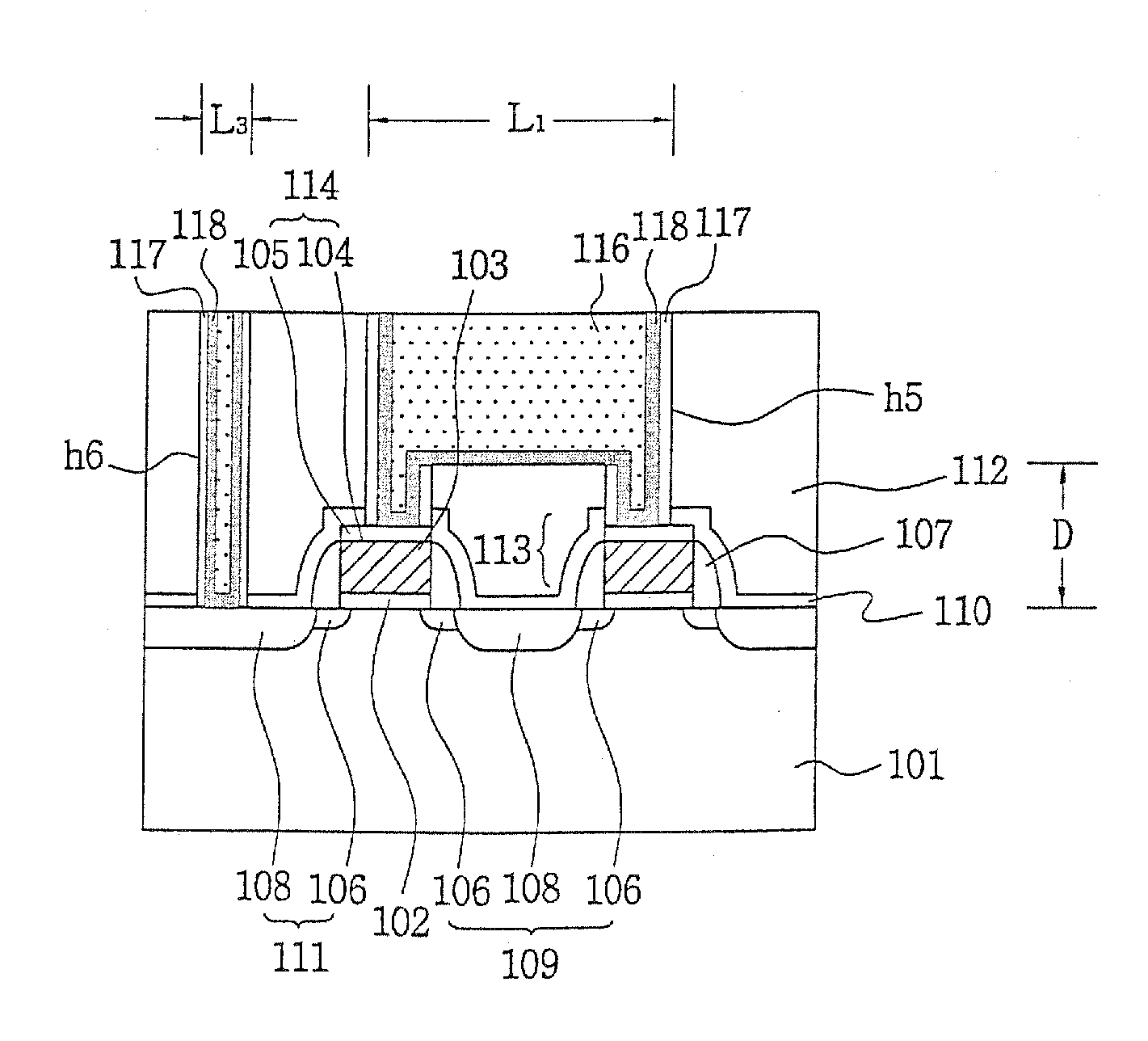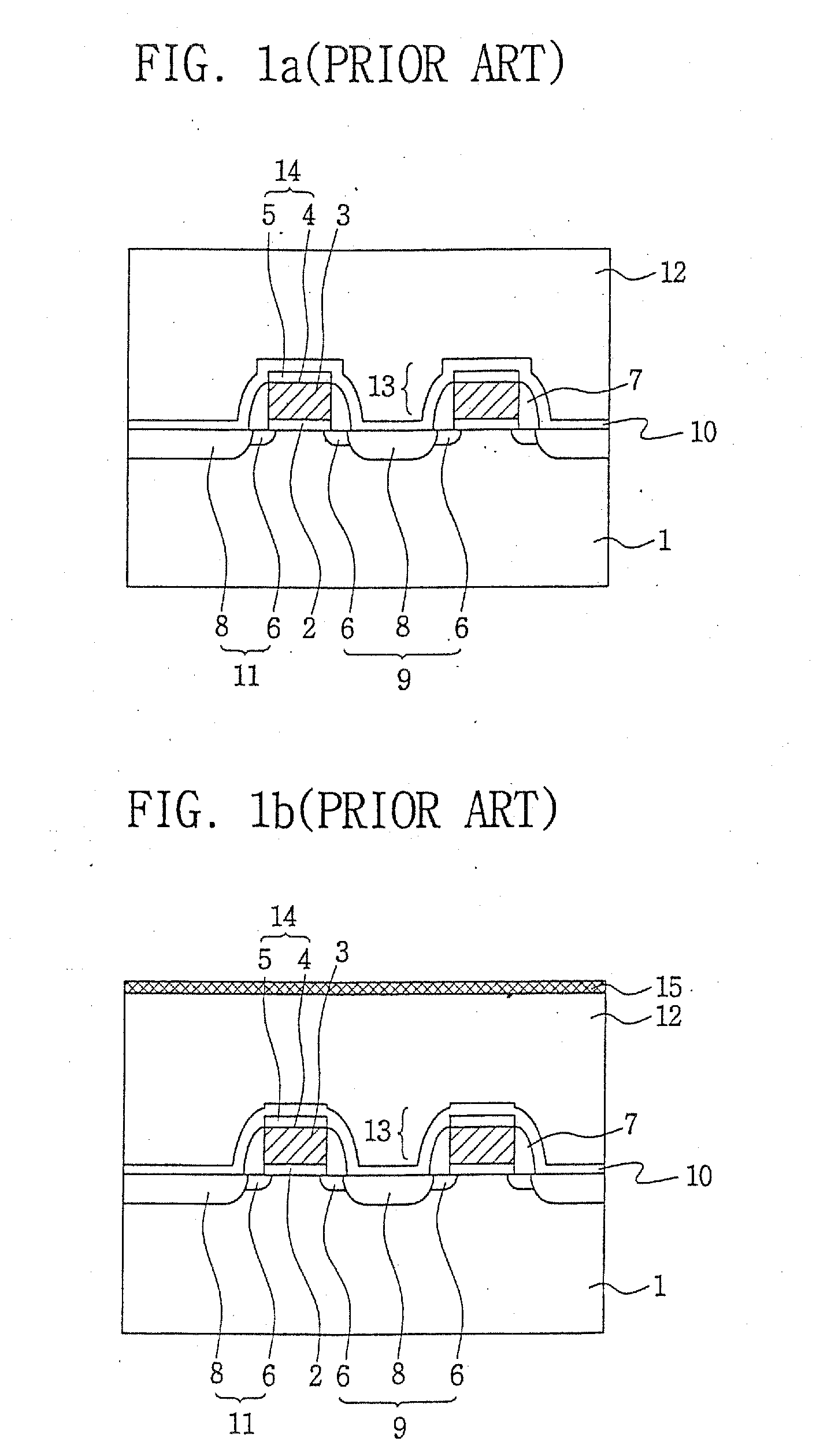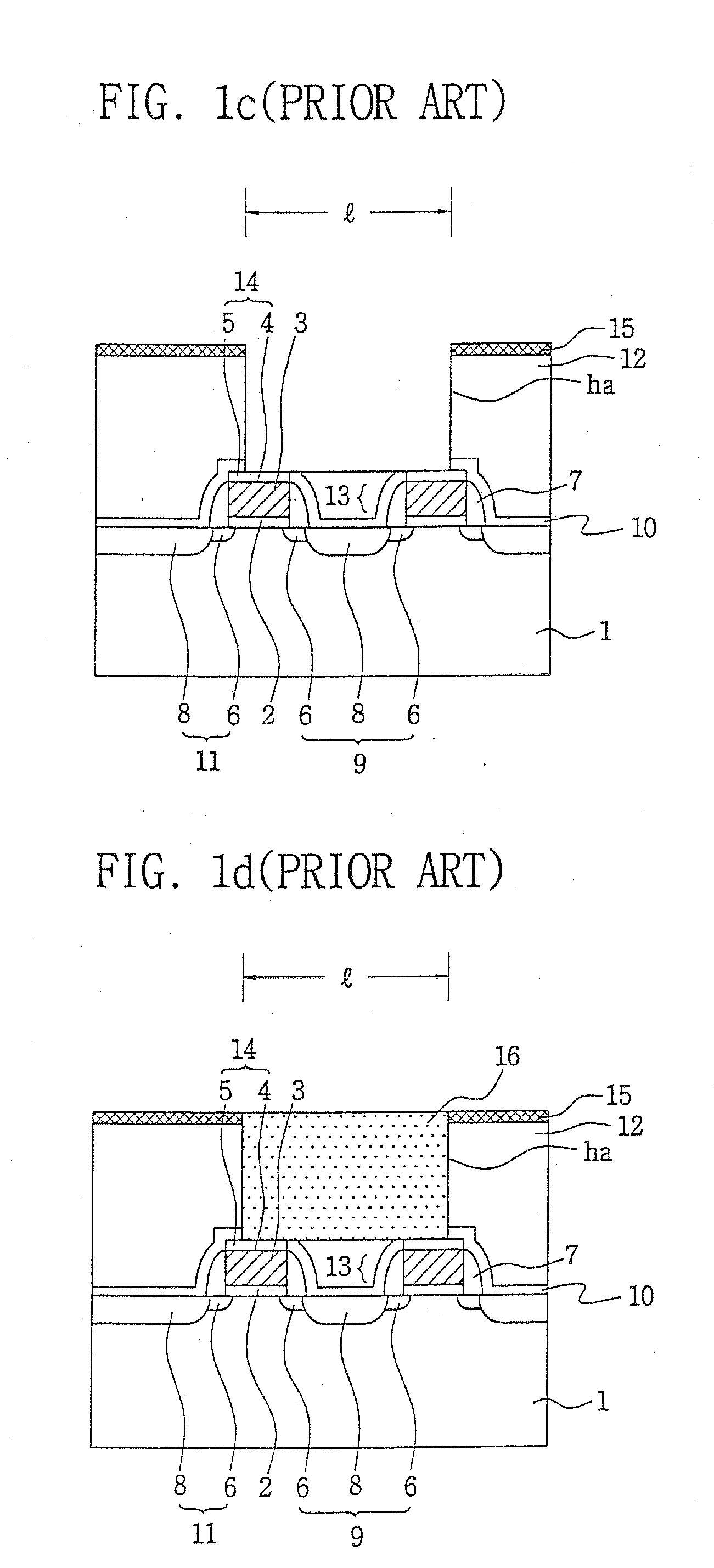Local interconnection method and structure for use in semiconductor device
a local interconnection and semiconductor technology, applied in the field of manufacturing of semiconductor devices, can solve the problems of inability to obtain contact patterning of such a size, difficult to guarantee a determined thickness margin, and inability to continue to increase integration, so as to reduce the number of process steps required, reduce the manufacturing cost of semiconductor devices, and increase the manufacturing yield
- Summary
- Abstract
- Description
- Claims
- Application Information
AI Technical Summary
Benefits of technology
Problems solved by technology
Method used
Image
Examples
Embodiment Construction
[0038] According to exemplary embodiments of the present invention, local interconnection structure and method will be described with reference to FIGS. 3 through 6.
[0039] It will be understood by those skilled in the art that the present invention can be embodied by numerous different types and is not limited to the following described embodiments. The following various embodiments are exemplary in nature. Accordingly, details of like components have been omitted so that the invention can be clearly presented.
[0040]FIGS. 3a through 3e are cross-sectional views showing a sequential process of local interconnection wire according to exemplary embodiments of the present invention. FIGS. 4a through 4d illustrate other exemplary embodiments, FIGS. 5a and 5b illustrate still other exemplary embodiments, and FIGS. 6a and 6b illustrate yet other exemplary embodiments. These figures are all cross-sectional views each illustrating a sequential process of local interconnection wire.
[0041] ...
PUM
 Login to View More
Login to View More Abstract
Description
Claims
Application Information
 Login to View More
Login to View More - R&D
- Intellectual Property
- Life Sciences
- Materials
- Tech Scout
- Unparalleled Data Quality
- Higher Quality Content
- 60% Fewer Hallucinations
Browse by: Latest US Patents, China's latest patents, Technical Efficacy Thesaurus, Application Domain, Technology Topic, Popular Technical Reports.
© 2025 PatSnap. All rights reserved.Legal|Privacy policy|Modern Slavery Act Transparency Statement|Sitemap|About US| Contact US: help@patsnap.com



